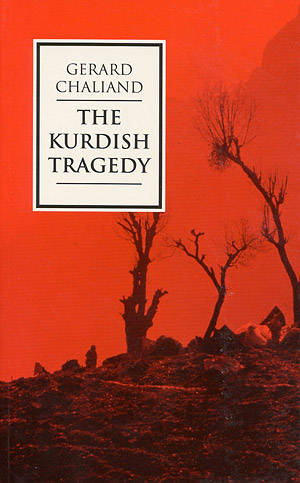Книга
 Курдская трагедия
Курдская трагедия
Жерар Шалян
Zed Books
1994, 120 стр.
ISBN: 9781856491006
ссылка
Организация Объединенных Наций поручила Жерару Шаляну, авторитетному исследователю проблем партизанских войн и движения сопротивления, представить доклад о положении курдов после войны в Персидском заливе. Его книга служит отличным введением к изучению курдского вопроса. Это история курдских общин от их возникновения, охватывающая их включение в Османскую империю в течение 15-го века, великих курдских восстаний 19-го века и решающего периода после Первой мировой войны.
Шалян описывает неустойчивое положение курдов в последнее время, кульминацией которого стал трагический исход курдских беженцев, бежавших от жестоких репрессий Саддама Хусейна и сомнительный прием в Турции.
Уникальность этой книги заключается в детальном анализе политической ситуации курдов в современном Иране, Ираке и Турции. Шалян объясняет позиции многочисленных курдских политических групп, рассматривает законодательство, затрагивающее курдскую жизнь и роль курдов в недавних ближневосточных столкновениях. Его оценка курдских политических партий и их часто противоречивые устремления дает актуальное представление о ситуации даже специалисту.
English synopsis
The Kurdish Tragedy
Gérard Chaliand
Gerard Chaliand, an internationally acknowledged authority on guerilla wars and resistance movements, was commissioned by the United Nations to report on the situation of the Kurds following the Gulf War. His book serves as an excellent introduction to the Kurdish issue. It provides a history of the Kurdish communities from their foundation, covering their eventual incorporation into the Ottoman Empire during the 15th century, the great Kurdish revolts of the 19th century and the crucial period following the First World War.
Chaliand documents the precarious situation of the Kurds in recent times, culminating in the tragic exodus of Kurdish refugees fleeing from Saddam Hussein's brutal repression to a dubious welcome in Turkey.
What makes this book unique is the detailed analysis of the political situation of the Kurds in contemporary Iran, Iraq and Turkey. Chaliand explains the positions of the multifarious Kurdish political groups, examines the legislation affecting Kurdish life and considers the role of the Kurds in recent Middle Eastern confrontations. His portrayal of the Kurdish political parties and their often conflicting aspirations offers insights that even the specialist reader will find of great relevance.


